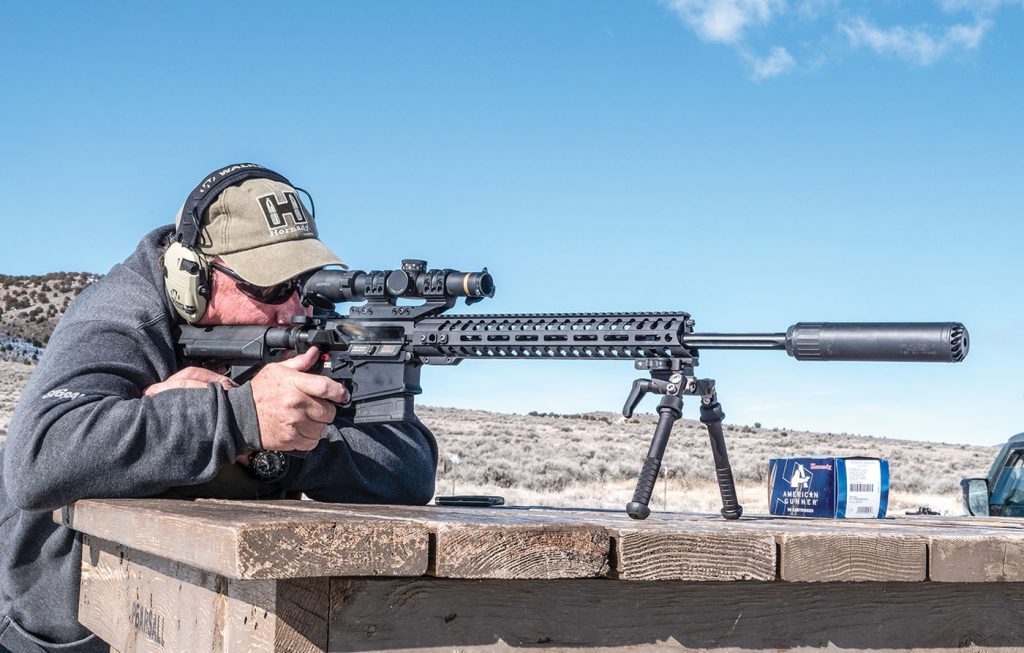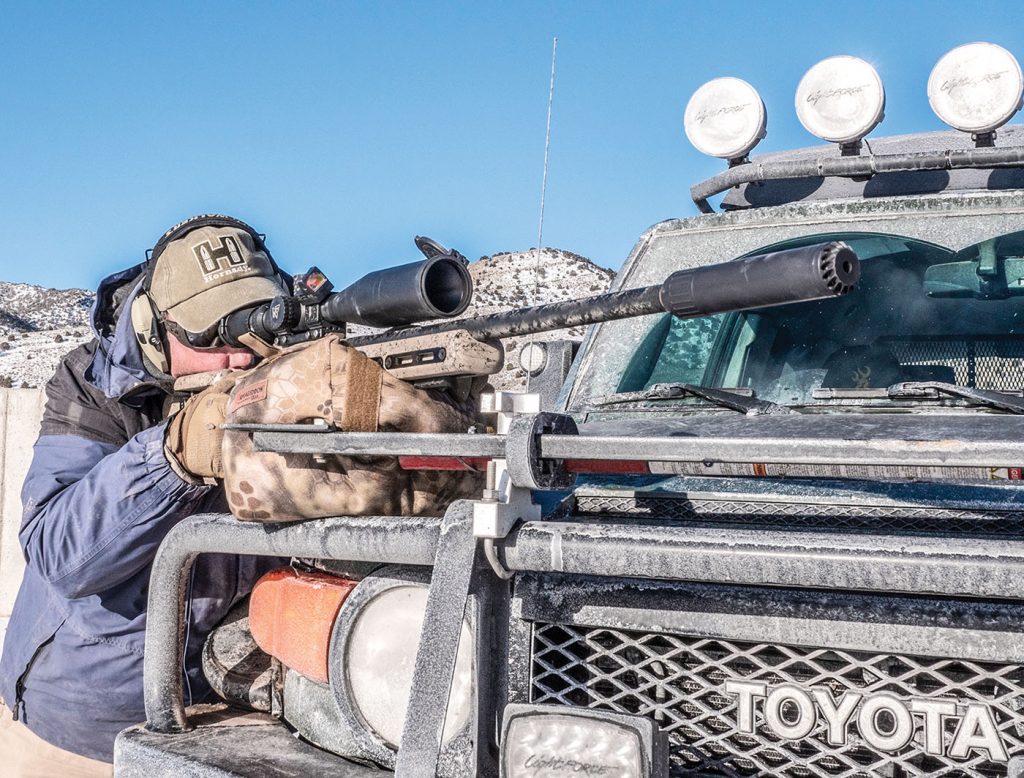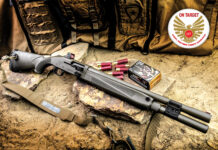Along with the piston driven SCAR, three other rifles were tested, all proven accurate during testing, each representing somewhat different gas systems and designs. Lewis Machine and Tool’s MWS MARS-H chambered in 6.5 Creedmoor has a fixed gas block and uses a standard DMPS bolt and carrier. Patriot Ordnance Factory’s DI Revolution (6.5 Creedmoor) uses an adjustable gas block with a carrier the same size as that of an AR-15. Each of these rifles were first tuned to operate with a muzzle brake to see what tuning, if any, was needed after attaching the Helix.
Lastly, my Surgeon bolt rifle chambered in .260 Rem. was used to test for increased recoil on the first round, bolt locking under rapid fire, heat retention and mirage.
Back Pressure
Having tested every generation of OSS suppressor, starting with the prototype, I am familiar with each, having used them on everything from 13-inch .308 rifles, to AKs, ARs, bolt rifles, and everything in between. The benefits of reduced back pressure are real, believe me, and in many cases these are the only designs I will use. While I do not have the technology to measure it, my shoulder, face and eyes have felt and seen it over the last several years.
With the OSS HX-QD attached to the SCAR it shoots softer, with no more gas in my face than is produced without a suppressor. Brass ejection was unchanged on the SCAR, as well as the other two AR10 rifles. Having little or no back pressure is a huge plus . . . so much so that I will exchange sound reduction for the reliability that a no back-pressure suppressor provides. No sucking up gas, filthy actions, magazines, and ammunition. Especially on AR’s, your rifle runs cooler with no change in brass ejection or overall operation.
Recoil

No back-pressure designs tend to produce less felt recoil. With no baffles you just don’t get that push, even on a bolt rifle. Using the OSS HX-QD the first round felt the same as round ten, with less recoil and no bolt stick or lock under rapid fire and no muzzle blast. It also runs much cooler. The OSS HX-QD was better than a bare muzzle, nothing like a purpose designed brake, but not bad. I Would not want to be on either side of it, but it’s not bad for the shooter.
Bottom Line
This is an impressive suppressor, not too heavy, long or loud. Accuracy, reliability and brass ejection were all unaffected. Back pressure is minimal to non-existent, keeping things clean, cool, and soft shooting. The OSS HX-QD suppressor attaches easily; you don’t need to crank it on, just hand tighten and the design keeps it from loosening up, and taking it off does not loosen the brake. At $1299, the titanium version is on the high end, but it’s really the only no back-pressure design right now and materials and construction are top notch. Move to the stainless model and you are down to a grand, pretty much what you pay for any high-quality suppressor, let alone one with no back pressure.

If you want a solid suppressor that keeps your rifle clean, smooth running and soft shooting without gunking up the works or clogging your lungs, this is the ticket. Check it out at your nearest dealer, or contact OSS Suppressors; Tel.: (801) 542-0425; E-mail: [email protected]; Web: www.osssuppressors.com




















